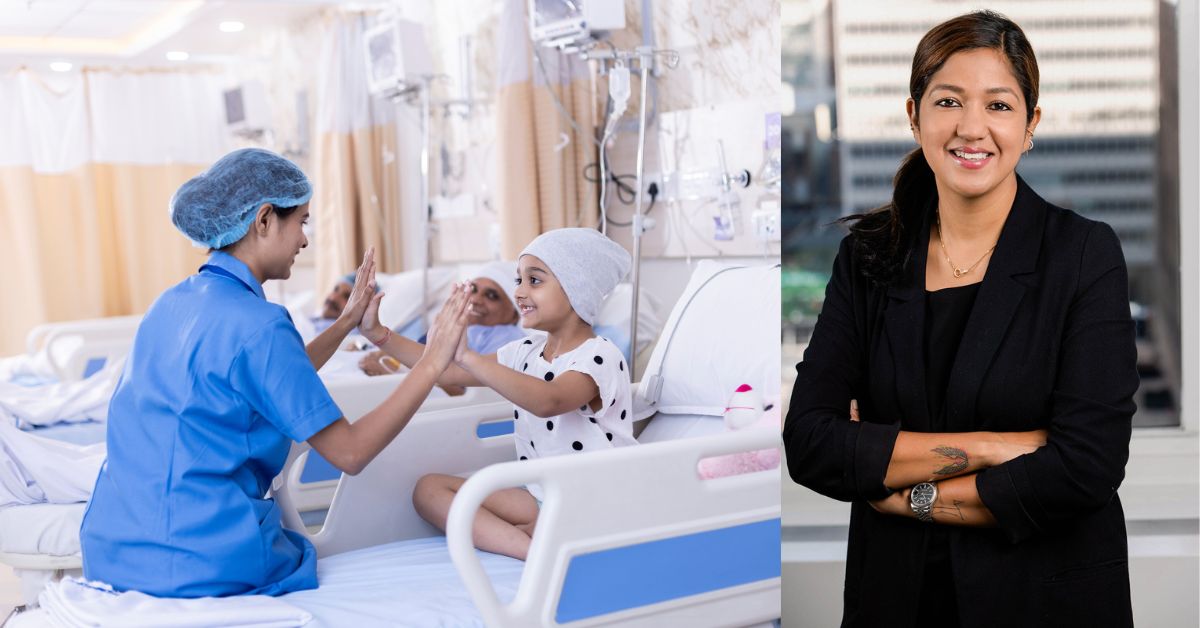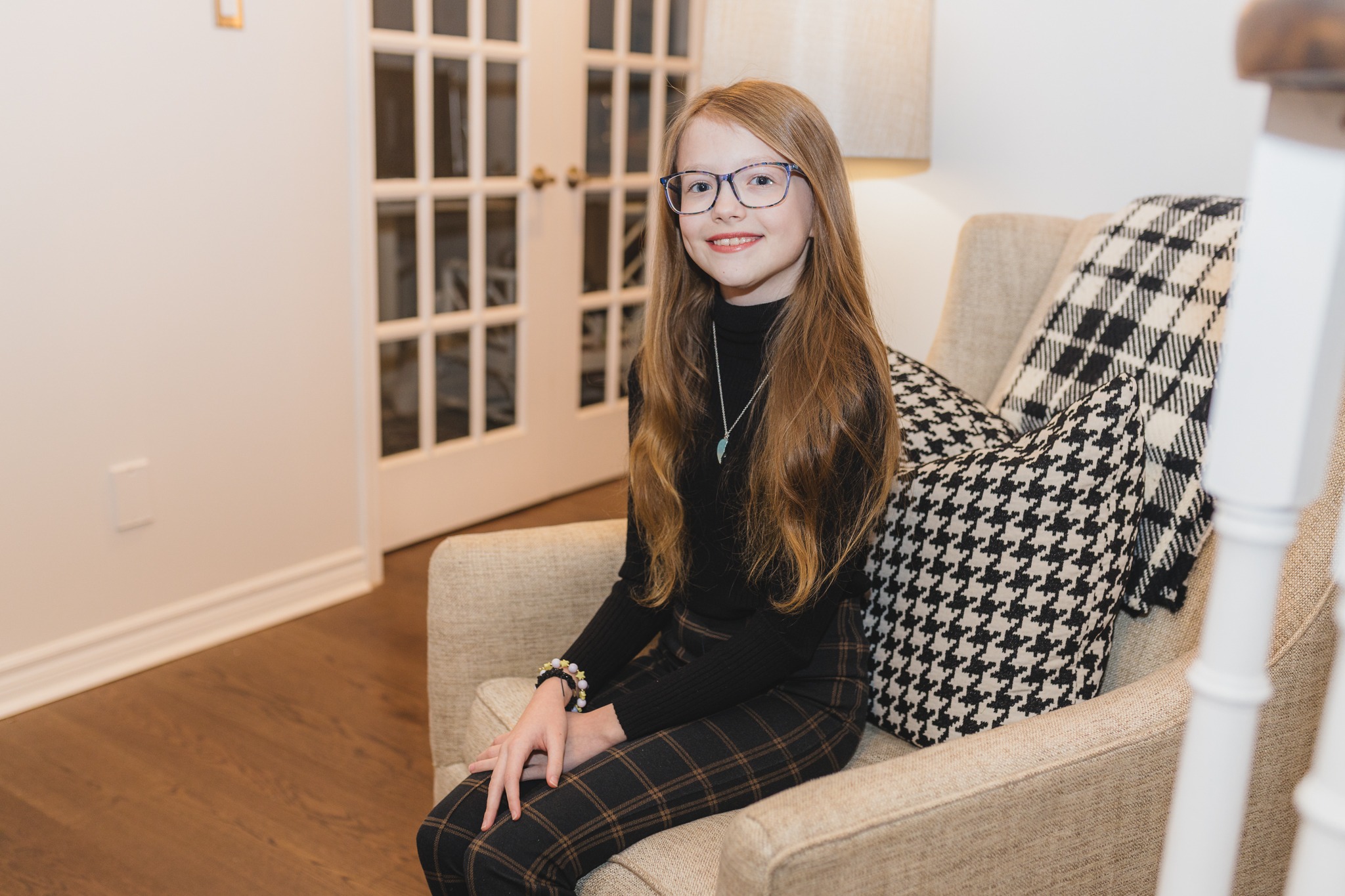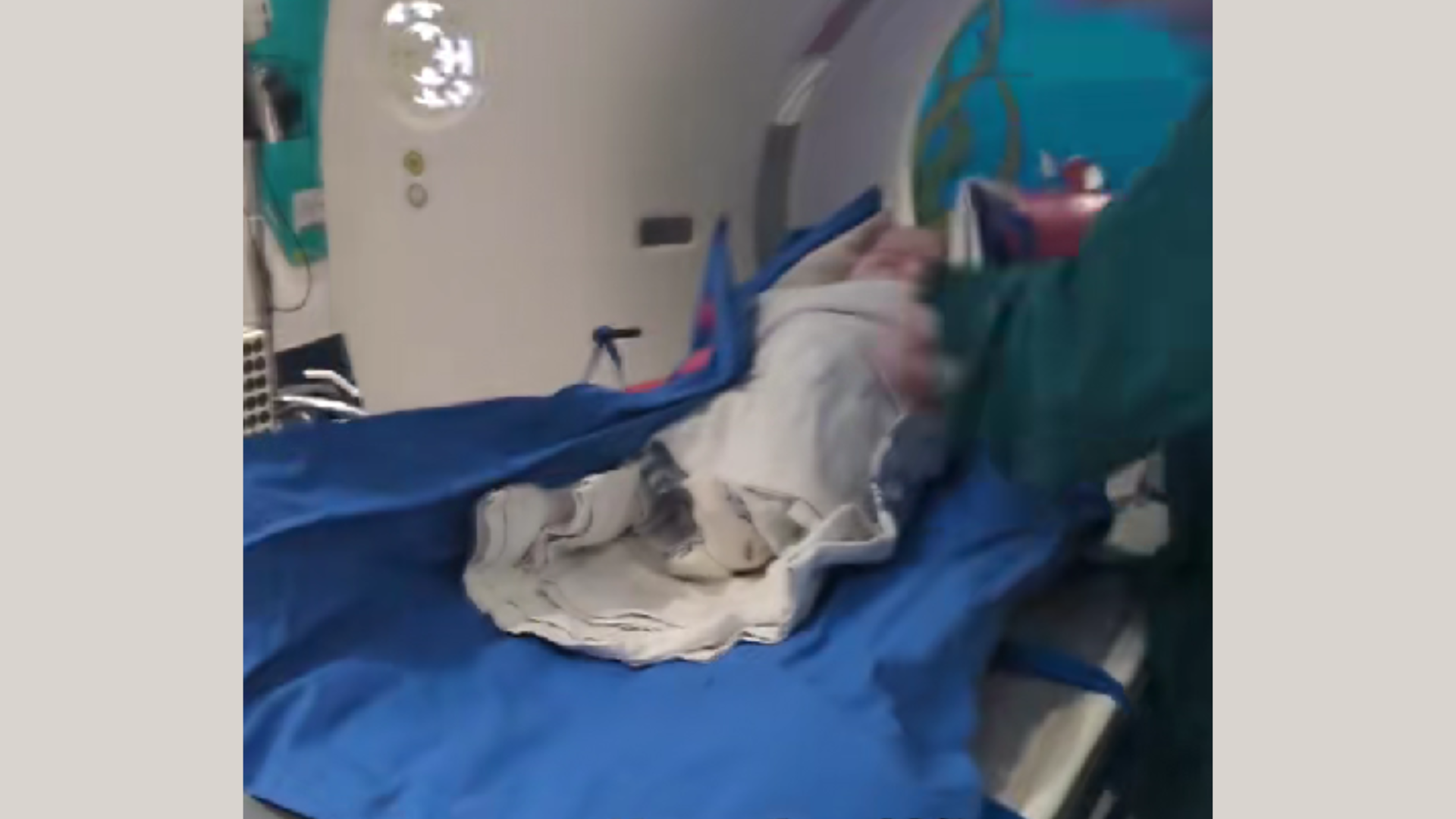How This Foundation Is Giving Hope to Children Fighting Cancer

Featured image courtesy: Representational pic (L), Shweta Rawat, Founder & Chairperson, The Hans Foundation (R)
When a child is diagnosed with cancer, every second counts. Timely treatment can be the difference between life and loss, hope and despair for the entire family. The sooner they get treated, the better their chances of survival and recovery. But here in India, countless children face a difficult reality: even as they’re diagnosed, they are unable to get the specialised care they need due to financial barriers.
In order to spread awareness against cancer, we’re highlighting this urgent issue and sharing how we can change this stark reality.
From day one, our mission as a foundation has been to ensure healthcare access for the most marginalised communities in the country. Over the past decade, we’ve been committed to improving healthcare for children through initiatives like the ‘Cochlear Implant Program’ and ‘Little Hearts Program’, now integrated into our ‘Hans Pediatric Program’.
The Hans Pediatric Program aims to help children overcome disabilities and serious health issues, providing support for congenital conditions — such as hearing impairments and heart defects, as well as care for epilepsy, cancer, NICU/PICU needs, and bone marrow transplants.
Through those initiatives, we witnessed firsthand the life-changing impact that prompt intervention and dedicated care can have on children who might not otherwise have the opportunity to live their lives to the fullest. Expanding our services to include paediatric cancer care was a decision rooted in our long-standing commitment to compassion and the belief that every child deserves the chance to live a healthy, happy life, regardless of their circumstances.
Childhood cancer in India: A crisis that demands attention
Every year, around 75,000 children in India are diagnosed with cancer. Unlike adult cancers, paediatric cancer has its own unique challenges — requiring specialised treatment but also, crucially, if caught early, has a high survival rate. In high-income countries, more than 80 percent of kids with cancer survive. But in India? It’s still only about 20 percent, mainly because so many families can’t afford or access the necessary treatment in time.
This difference highlights the urgent necessity to tackle structural challenges in paediatric cancer treatment in India. Specialised care is often available only in major cities, and treatment is a long process.
Families from rural or underserved areas need to travel long distances to reach hospitals, spending huge amounts on travel and stay, and often facing heartbreaking choices about work, income, and even relocating. Beyond the financial burden, the emotional toll on families, who may have to abandon work or uproot their lives, adds an overwhelming strain. This highlights the need for a comprehensive approach that addresses not only treatment but also support services for families.
Prioritising early detection and affordable access
For childhood cancer, early detection is key. Simple screenings and awareness programmes can detect cancer in kids before it spreads. However, we need to reach the rural and underserved areas, where there’s often little to no awareness about childhood cancer.
Strategies to support early detection, which can greatly improve outcomes for children, include empowering local practitioners, training community health workers, and collaborating with regional hospitals.
While medical intervention is essential, cancer care must be supplemented with financial and emotional support for families. Often, the costs associated with cancer treatment extend beyond medical bills — covering expenses like transportation, housing near treatment facilities, and income lost when parents must devote their time to caregiving.
Addressing these needs through comprehensive support can improve both the survival rates and quality of life for these young patients and their families.
Government efforts in paediatric cancer care: The role of RBSK
The Ministry of Health & Family Welfare, Government of India, launched the Rashtriya Bal Swasthya Karyakram (RBSK) under the National Health Mission to provide comprehensive child health screening and early intervention services. This initiative plays a crucial role in identifying health issues early and connecting children to the necessary care and treatment.
Collaborating with private entities and non-profit organisations can elevate the RBSK’s success. Such partnerships enhance the programme’s reach, strengthen service delivery, and amplify its impact. By joining forces, the Government, private sector, and civil society can share resources, expand healthcare infrastructure, and ensure that every child receives the essential care they need.
Honouring a 15-year-long commitment to children’s health
As we celebrate The Hans Foundation’s 15th anniversary this year, we take stock of the path from our initial roots to our current extended paediatric care activities. Understanding that healthier children lead to healthier communities is the foundation of our commitment to children’s well-being. Beyond curing a disease, our focus on paediatric oncology demonstrates our commitment to justice, resilience, and hope in the face of adversity.
Every child whose life we have an impact on confirms our conviction that easily accessible healthcare has the capacity to change lives. As we strive towards a future where no kid battles cancer alone and every child has the chance to overcome life’s most difficult challenges, the lessons we’ve learnt over the years serve as a guidance.
Looking to the future: Collaboration and compassion
The Hans Foundation is strongly dedicated to increasing healthcare access for underprivileged children, but moving forward will require collaboration. By working together, healthcare providers, policymakers, and community organisations can enhance accessibility, affordability, and compassion in childhood cancer care.
Let us renew our dedication to a future where healthcare inequities no longer hinder a child’s chance at survival and well-being.
Our goal is evident and simple that every child should have the opportunity to have a complete, healthy life without being hindered by cancer. Drawing from 15 years of successful efforts, we progress with optimism, resolve, and an aspiration for a global environment where all children have equal opportunities to succeed, irrespective of their situations.
This article is contributed by The Hans Foundation; Written by Shweta Rawat, Founder & Chairperson
Edited by Pranita Bhat
Disclaimer: This content is submitted directly by the respective brand/organisation. The Better India’s Editorial team is not involved in creating this article and is not responsible for its accuracy or consequences. For any concerns, please connect with the brand directly.
Sources:
‘International Child Cancer Day: More than 400,000 children get diagnosed with cancer every year‘: by The Economic Times, Published on 15 February, 2023.
‘80% childhood cancers are curable, say experts‘: by Hindustan Times, Published on 2 November, 2019.
‘Only 30% of all kids with cancer in India able to reach tertiary care centre‘: by Shobita Dhar for The Times Of India, Published on 9 February, 2021.
link




:max_bytes(150000):strip_icc()/asian-sick-little-girl-lying-in-bed-with-a-high-fever-952683074-5b5b784046e0fb005027ca13.jpg)

